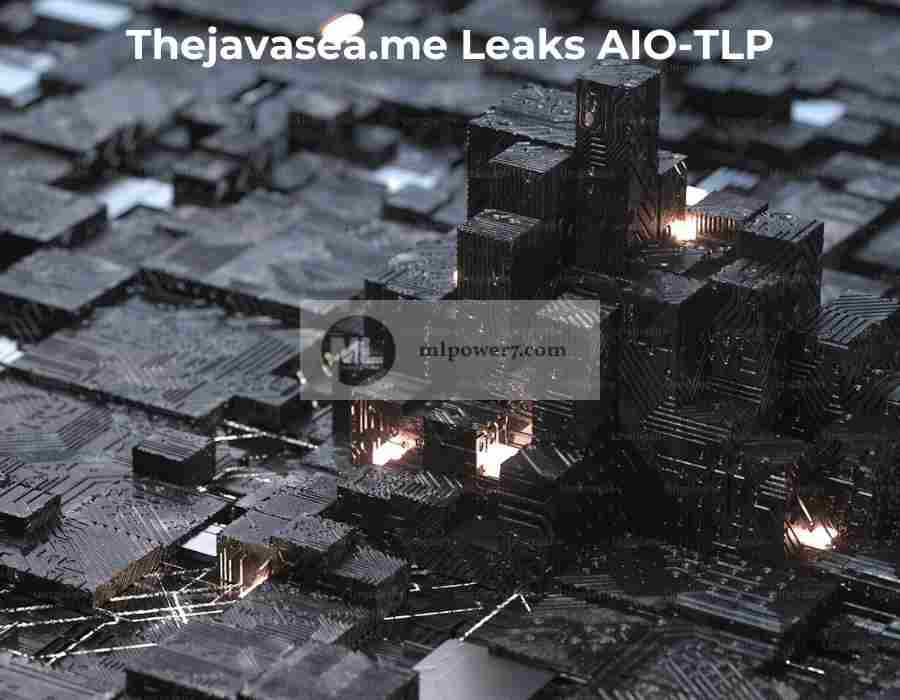In today’s digital age, online platforms and websites are constantly being developed, providing users with access to a variety of content, some of which can be sensitive. Thejavasea.me leaks AIO-TLP has recently gained attention due to certain leaked information making its way onto the internet. If you’ve stumbled across this term and are wondering what it all means, you’re not alone.
In this guide, we will dive deep into what thejavasea.me leaks AIO-TLP are, how they affect users, and what you need to know to stay informed. We’ll cover everything from potential risks to how these leaks might impact the general public.
What Are Thejavasea.me Leaks AIO-TLP?
The term thejavasea.me leaks AIO-TLP refers to leaked content or data originating from the website thejavasea.me. AIO-TLP refers to specific categories or codes attached to the leaked data, with AIO-TLP287 and AIO-TLP142 being examples. These leaks have caught the attention of many users due to the sensitive nature of the information involved.
Think of data leaks like leaving a window open during a storm—it invites all sorts of unwelcome problems, from security risks to privacy violations. In the case of thejavasea.me leaks AIO-TLP, this open window could potentially expose users’ personal information, making them vulnerable to cyber threats.
Understanding AIO-TLP287 and AIO-TLP142
You might be wondering, what exactly are AIO-TLP287 and AIO-TLP142? These codes refer to specific batches of leaked data that have been made available online. Each code represents a distinct dataset or category of information leaked from thejavasea.me.
While the exact contents of AIO-TLP287 and AIO-TLP142 are unclear without accessing the leak, such codes often indicate different segments of sensitive information, such as login credentials, emails, or private communications.
How Did Thejavasea.me Leaks Happen?
Data leaks can occur for a variety of reasons. In the case of thejavasea.me, the leak could have been caused by a security breach, negligence, or even a malicious insider leaking the information deliberately. Cybercriminals are always on the lookout for vulnerabilities, and when they find one, they can exploit it to steal valuable information.
Imagine a burglar finding a house with a broken lock—that’s essentially what happens when a website has weak security protocols in place. The burglars, in this case, are hackers or malicious entities who steal sensitive data and expose it to the public.
The Potential Risks of Leaked Data
The impact of leaked data is far-reaching and can cause significant harm. If your personal data is part of the thejavasea.me leaks AIO-TLP, you might face risks such as:
- Identity theft: Cybercriminals can use your personal information to impersonate you.
- Financial fraud: Leaked financial details could be used for fraudulent transactions.
- Phishing attacks: Hackers may use your information to send deceptive emails and trick you into revealing more sensitive data.
These risks highlight the importance of understanding and addressing leaks like thejavasea.me leaks AIO-TLP as soon as possible.
How to Protect Yourself from Data Leaks
In the face of data leaks like those from thejavasea.me, it’s essential to take proactive steps to protect yourself. Here are some tips:
- Change your passwords: Use strong, unique passwords for all your accounts, and avoid reusing them.
- Enable two-factor authentication: This adds an extra layer of security by requiring a second form of identification.
- Monitor your accounts: Keep an eye on your financial statements and personal accounts for any suspicious activity.
- Stay informed: Regularly check if your information has been exposed by using services like Have I Been Pwned.
By taking these precautions, you can reduce the risk of falling victim to cyberattacks resulting from leaks like AIO-TLP287 and AIO-TLP142.
What is Thejavasea.me?
Thejavasea.me is a website that likely hosts or provides access to a variety of content. However, due to its association with leaks and questionable content, it may not be a safe platform to use. It’s important to remain cautious when dealing with sites that don’t have a transparent reputation.
The leaks AIO-TLP associated with thejavasea.me could include sensitive information, making the site even more concerning for users who are mindful of their online privacy.
Is Accessing Leaked Data Legal?
You may wonder if it’s legal to access the information from thejavasea.me leaks AIO-TLP. In most cases, the answer is no. Accessing or distributing leaked data is illegal and can result in serious consequences, including fines or jail time. It’s always best to avoid interacting with leaked content, as it may also expose you to malware or further security risks.
Consequences of Leaked Information
When sensitive information is leaked, the consequences can be devastating. Here’s a look at some potential outcomes:
- Personal Damage: Leaked data can cause embarrassment, loss of reputation, or personal harm.
- Financial Loss: Hackers may use the information to commit fraud, leading to financial instability.
- Legal Issues: Leaked data could involve legal documents or confidential communications, potentially leading to lawsuits or penalties.
These are just a few reasons why data leaks are so serious and why users need to be vigilant.
Can Leaks Affect Your Privacy?
Absolutely. Data leaks can significantly impact your privacy. When information like your personal details, email addresses, or even private conversations are leaked, it puts your digital life at risk. Hackers and cybercriminals can use this information to manipulate or harm you.
In today’s world, our online privacy is akin to locking our doors at home. We wouldn’t leave our house unlocked, so why should we leave our data vulnerable to leaks like AIO-TLP287 and AIO-TLP142?
How to Stay Safe Online in the Age of Leaks
Staying safe online requires vigilance and good security habits. Here are a few ways you can protect yourself from becoming a victim of future leaks:
- Use VPNs: Virtual Private Networks (VPNs) provide an additional layer of security when browsing online.
- Encrypt sensitive data: Make sure your important files are encrypted, so even if they are leaked, they cannot be easily accessed.
- Regularly update software: Outdated software is a common entry point for hackers. Always ensure your systems are up to date.
By staying informed and adopting these habits, you can navigate the digital world more securely.
Why Are Data Leaks So Common?
Data leaks like thejavasea.me leaks AIO-TLP are becoming increasingly common due to the sheer volume of data stored online. Cybercriminals are constantly seeking out vulnerabilities, and with many platforms not investing enough in robust security measures, leaks are inevitable.
Think of it like a game of cat and mouse—the hackers are always looking for a way in, and the companies are trying to block them out. Unfortunately, it’s a race where the hackers sometimes win.
What Should You Do If Your Data is Leaked?
If you discover that your data was part of thejavasea.me leaks AIO-TLP, take immediate action:
- Change your passwords: Secure your accounts by updating all your passwords.
- Monitor your credit: Keep an eye on your financial statements for any unusual activity.
- Use identity theft protection services: These services can alert you if your identity is being used suspiciously.
Acting quickly can help minimize the damage caused by data leaks.
The Impact of Leaks on Websites Like Thejavasea.me
Leaks can tarnish the reputation of websites like thejavasea.me, causing users to lose trust in the platform. With the increasing frequency of leaks, it’s becoming crucial for websites to prioritize security and transparency to maintain user confidence.
Data Leaks: A Growing Concern in the Digital World
As the digital world continues to expand, so do the risks associated with data leaks. It’s essential for users and companies alike to take data security seriously and implement best practices to avoid the consequences of leaks like AIO-TLP287 and AIO-TLP142.
The Future of Online Privacy
With leaks becoming a regular occurrence, the future of online privacy looks uncertain. However, advancements in cybersecurity and increased awareness can help mitigate these risks. Users need to be proactive in protecting their personal information while pushing companies to prioritize data security.
FAQs
1. What does AIO-TLP stand for in thejavasea.me leaks?
AIO-TLP refers to specific leaked data categories from thejavasea.me, with AIO-TLP287 and AIO-TLP142 representing different sets of leaked information.
2. How can I find out if my data was part of thejavasea.me leaks?
You can use data breach monitoring services like Have I Been Pwned to see if your information has been exposed.
3. Is it safe to visit websites associated with leaks like thejavasea.me?
No, it’s best to avoid such websites as they may expose you to further security risks or legal issues.
4. Can I recover my data if it was leaked?
Once data is leaked, recovering it fully is almost impossible. However, you can take steps to protect yourself from further damage by changing passwords and monitoring your accounts.
5. Why do data leaks happen so frequently?
Data leaks occur due to vulnerabilities in security systems, often exploited by hackers looking for sensitive information to sell or misuse.
Read More: Paramount Plus Login: The Complete Guide to Streaming and More



